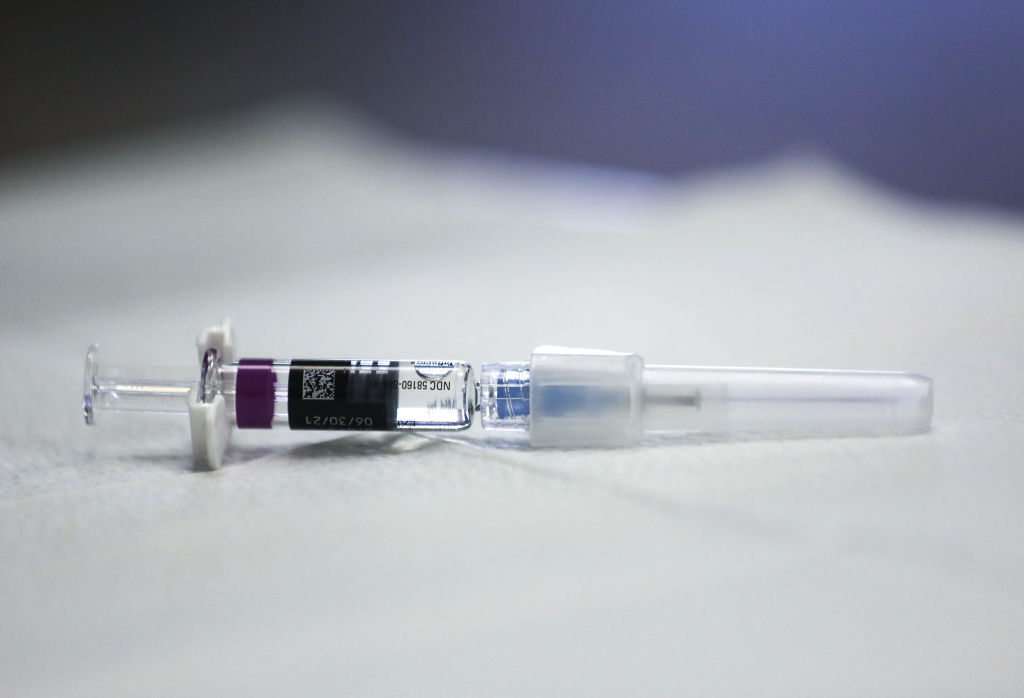Lab experiment suggests flu shots could help fight off coronavirus infections


A free daily email with the biggest news stories of the day – and the best features from TheWeek.com
You are now subscribed
Your newsletter sign-up was successful
Flu shots are already considered an important factor in combating the coronavirus pandemic, since widespread inoculations will hopefully help prevent medical facilities from becoming overwhelmed by dual diseases. But new research suggests flu shots may also play some role in preventing COVID-19 infections in the first place, The Scientific American reports.
A study, which has not yet been peer-reviewed, found that workers at Radboud University Medical Center in the Netherlands who received a flu shot during the 2019-20 season were 39 percent less likely than their colleagues to test positive for the coronavirus as of June 1, 2020. Non-vaccinated employees contracted the virus at a 2.23 percent rate, compared to only 1.33 percent of those who were vaccinated.
The preliminary research would certainly require further clinical trials — though the author of the study noted it would be unethical to compel a control group of subjects to be denied a flu shot — and there could be several reasons why the vaccinated group staved off infection more easily, including the possibility that they are generally more health conscious and took more COVID-19 precautions.
The Week
Escape your echo chamber. Get the facts behind the news, plus analysis from multiple perspectives.

Sign up for The Week's Free Newsletters
From our morning news briefing to a weekly Good News Newsletter, get the best of The Week delivered directly to your inbox.
From our morning news briefing to a weekly Good News Newsletter, get the best of The Week delivered directly to your inbox.
Still, there have been other studies that hint at a possible link between flu shots (and other vaccines, for that matter) and lower COVID-19 risk. Additionally, the Radboud research team conducted a laboratory experiment in which they took blood cells from healthy individuals, purified them, and exposed some of them to a flu vaccine. After allowing the cells to grow for a few days, the researchers exposed them to the coronavirus. A day later they found that the vaccinated cells produced more of several kinds of immune molecules that fight off pathogens than those that were initially left alone. Read more at The Scientific American.
A free daily email with the biggest news stories of the day – and the best features from TheWeek.com
Tim is a staff writer at The Week and has contributed to Bedford and Bowery and The New York Transatlantic. He is a graduate of Occidental College and NYU's journalism school. Tim enjoys writing about baseball, Europe, and extinct megafauna. He lives in New York City.
-
 Why is the Trump administration talking about ‘Western civilization’?
Why is the Trump administration talking about ‘Western civilization’?Talking Points Rubio says Europe, US bonded by religion and ancestry
-
 Quentin Deranque: a student’s death energizes the French far right
Quentin Deranque: a student’s death energizes the French far rightIN THE SPOTLIGHT Reactions to the violent killing of an ultraconservative activist offer a glimpse at the culture wars roiling France ahead of next year’s elections
-
 Secured vs. unsecured loans: how do they differ and which is better?
Secured vs. unsecured loans: how do they differ and which is better?the explainer They are distinguished by the level of risk and the inclusion of collateral
-
 Trump HHS slashes advised child vaccinations
Trump HHS slashes advised child vaccinationsSpeed Read In a widely condemned move, the CDC will now recommend that children get vaccinated against 11 communicable diseases, not 17
-
 FDA OKs generic abortion pill, riling the right
FDA OKs generic abortion pill, riling the rightSpeed Read The drug in question is a generic version of mifepristone, used to carry out two-thirds of US abortions
-
 RFK Jr. vaccine panel advises restricting MMRV shot
RFK Jr. vaccine panel advises restricting MMRV shotSpeed Read The committee voted to restrict access to a childhood vaccine against chickenpox
-
 Texas declares end to measles outbreak
Texas declares end to measles outbreakSpeed Read The vaccine-preventable disease is still spreading in neighboring states, Mexico and Canada
-
 RFK Jr. shuts down mRNA vaccine funding at agency
RFK Jr. shuts down mRNA vaccine funding at agencySpeed Read The decision canceled or modified 22 projects, primarily for work on vaccines and therapeutics for respiratory viruses
-
 Measles cases surge to 33-year high
Measles cases surge to 33-year highSpeed Read The infection was declared eliminated from the US in 2000 but has seen a resurgence amid vaccine hesitancy
-
 Kennedy's vaccine panel signals skepticism, change
Kennedy's vaccine panel signals skepticism, changeSpeed Read RFK Jr.'s new vaccine advisory board intends to make changes to the decades-old US immunization system
-
 Kennedy ousts entire CDC vaccine advisory panel
Kennedy ousts entire CDC vaccine advisory panelspeed read Health Secretary RFK Jr. is a longtime anti-vaccine activist who has criticized the panel of experts
